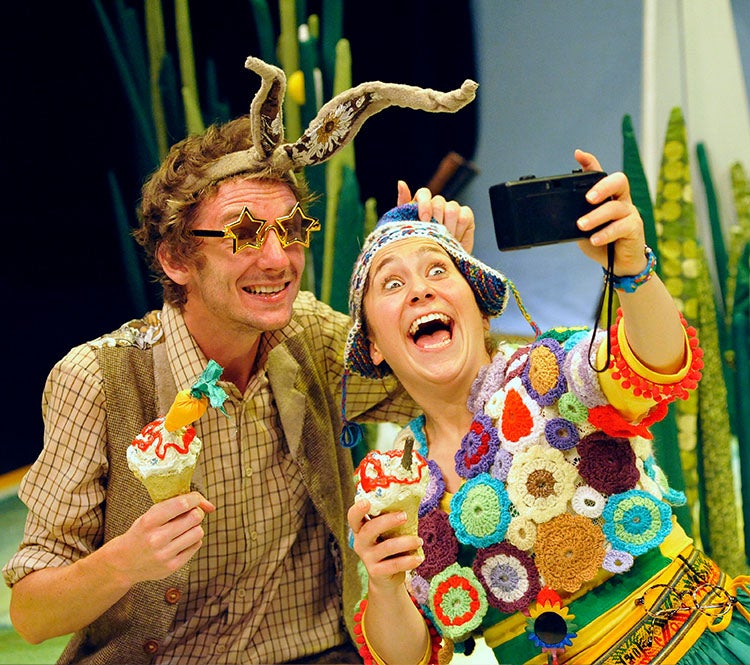Sensory-Friendly Performances
Wharton Center, in collaboration with a variety of MSU and community partners, provides a supportive and welcoming environment that will make live theatre accessible to those with sensory sensitivities and their families.
What are Sensory-Friendly Performances?
At Sensory-Friendly Performances, accommodations will include:
- Lower sound and light levels; all strobe light effects removed.
- House lights on at a low level throughout the performance.
- Audience members are welcome to stand, move around, and enter and leave the theatre as needed.
- An Activities Area with crafts and activities for engagement.
- Designated quiet and calm spaces.
- Autism specialists and trained volunteers on hand.
- Sensory supports available (fidgets, earplugs).
- A Social Narrative that portrays the theatre-going experience with pictures and text.
- A Character Guide with pictures identifying each character in the show.
- Audience members are welcome to bring their own manipulatives, seat cushions, comfort objects, headphones, electronics, special snacks, and other support items to the show.
- ASL interpretation is available. If you would like to be provided with this service, please notify the Ticket Office when you purchase your ticket.
Wharton Center understands that ticket cost can be a barrier for some to attend performances. A special offer price is available online for our Sensory-Friendly Performances.
For more information on ticket cost assistance for your group or organization, please reach out to Randall Fields at Randall.fields@whartoncenter.com or Kelly Stuible-Clark at stuible3@whartoncenter.com.
Sensory-Friendly Performances are sponsored by Delta Dental of Michigan with additional support from AF Group; and Peckham, Inc.
Helpful Documents
Helpful Links
Why are Sensory-Friendly Performances important?
People with sensory, social, and learning disabilities have the capacity to participate in a range of community activities when provided the opportunity and appropriate support. This includes but is not limited to autism spectrum disorder (ASD), sensory processing disorders, ADHD, Epilepsy, PTST, vision and hearing disabilities, and dementia. When we provide opportunities for individuals with these disabilities to engage, the benefits include greater community, civic, and social participation for everyone. Sensory-Friendly Performances are, perhaps, a stepping stone to becoming a totally inclusive community gathering place.
An estimated one of every six children is affected by neurological conditions that require treatment, and the incidence appears to be increasing. For example, a new case of autism is diagnosed in the United States every 15 minutes. According to the Centers for Disease Control, one in every 36 children in the United States has autism, pervasive developmental disorder (PDD), or another autism spectrum disorder. These disorders occur in all racial, ethnic, and socioeconomic groups.



